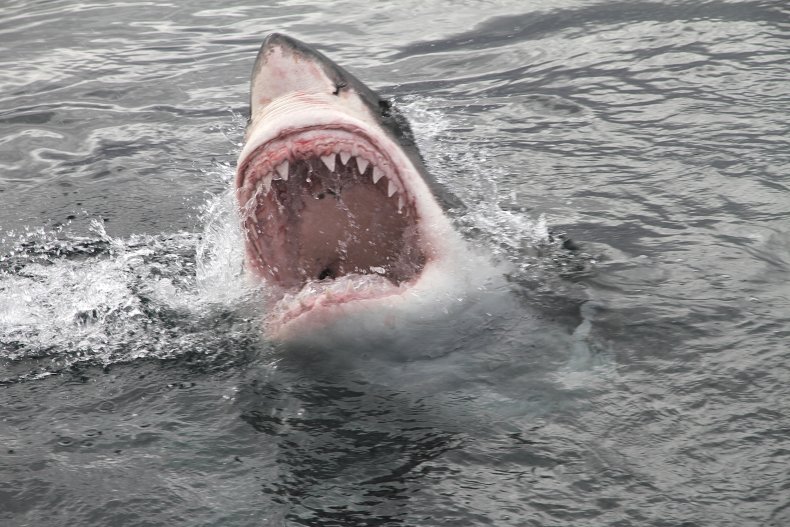BY ROBYN WHITE ON 1/13/22
Sharks are more likely to attack humans during a full moon, a study has found.
While the exact cause for this remains unclear, the research shows a clear connection between a shark's behavior and the lunar phase.
The scientists, from the University of Florida and Louisiana State University, used shark attack data between 1970-2016 from across the globe to test for a relationship between shark attacks and the full moon. Their findings are published in the Frontiers in Marine Science.
A series of tests were run across shark attacks that occurred in North America (1,095 attacks), Australia (307 attacks), Africa (280 attacks), and the Pacific Ocean Islands (260 attacks). These four groups were selected based on having more than 100 reported shark attacks in their coastal waters.
Findings confirmed that more shark attacks "than were expected" occurred when lunar illumination was more than 50 percent, while all instances of fewer shark attacks than expected happened at less than 50 percent.
A full moon occurs at 100 percent illumination.
"Anytime an observed number of shark attacks was significantly lower than the expected number, it was during very low lunar illumination, whereas anytime an observed number of shark attacks was significantly higher than the expected number, it was during high lunar illumination phases," the study said.
Great white sharks in particular, were found to have attacked less when the lunar illumination was between 0 percent and 10 percent.

Researchers have found a link between the lunar phases and shark attack risk.
"If lunar light indeed has a direct effect on shark behavior, the significant moon phase effect detected for white sharks may be explained by this species' habit of feeding mostly at or near the water surface, targeting meso- and epipelagic prey items," the study said.
Shark attacks are incredibly rare, however according to the research it is "well-documented" that more occur when the moon is in a fuller phase.
In 2020, the International Shark Attack File, run by Florida Museum, recorded 129 shark-human interactions. This included 57 unprovoked attacks, 10 of which were fatal. Three of these were in the U.S., six in Australia and one in Saint Martin.
"Our findings contribute to a fuller understanding of shark behavior, which may help risk management in the future," the study said. "Ultimately, moon phase and lunar illumination will not likely be a strong predictor that alone can forecast risk of shark attack. Local environmental variables are expected to continue to be more practical information for assessing risk.
"However, the results here strongly support the idea that moon phase does play a role in overall risk of shark attack, and if future studies are able to consider local and regional environmental conditions along with lunar illumination, both understating shark attacks and forecasting risk may improve."
The research concludes that while preventing all shark attacks worldwide remains an "unlikely goal," a continued understanding of shark biology, ecology, and environmental interactions should help to develop better estimates of attack risk.
"If lunar light indeed has a direct effect on shark behavior, the significant moon phase effect detected for white sharks may be explained by this species' habit of feeding mostly at or near the water surface, targeting meso- and epipelagic prey items," the study said.
Shark attacks are incredibly rare, however according to the research it is "well-documented" that more occur when the moon is in a fuller phase.
In 2020, the International Shark Attack File, run by Florida Museum, recorded 129 shark-human interactions. This included 57 unprovoked attacks, 10 of which were fatal. Three of these were in the U.S., six in Australia and one in Saint Martin.
"Our findings contribute to a fuller understanding of shark behavior, which may help risk management in the future," the study said. "Ultimately, moon phase and lunar illumination will not likely be a strong predictor that alone can forecast risk of shark attack. Local environmental variables are expected to continue to be more practical information for assessing risk.
"However, the results here strongly support the idea that moon phase does play a role in overall risk of shark attack, and if future studies are able to consider local and regional environmental conditions along with lunar illumination, both understating shark attacks and forecasting risk may improve."
The research concludes that while preventing all shark attacks worldwide remains an "unlikely goal," a continued understanding of shark biology, ecology, and environmental interactions should help to develop better estimates of attack risk.
No comments:
Post a Comment